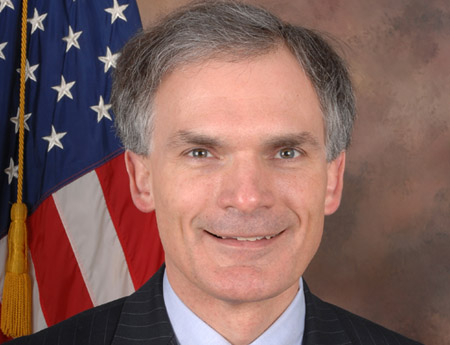Whole ‘Latta’ Movin’ And Shakin’ Goin’ On

The smarter way to stay on top of broadcasting and cable industry. Sign up below
You are now subscribed
Your newsletter sign-up was successful
In mid-July, a bill ending the prohibition on integrated set-tops, added to satellite reform legislation, was passed by the House on a voice vote. Rep. Bob Latta (R-Ohio), vice chairman of the House Communications Subcommittee, was instrumental in getting that done.
Latta is now pushing the Senate to do the same. There is some urgency, particularly given how slowly progress is made in Congress: The bill has to pass by the end of the year or the satellite compulsory license sunsets.
Latta spoke with B&C Washington bureau chief John Eggerton about those efforts, network neutrality and the importance of freeing up more unlicensed WiFi—a key driver of cable’s wireless broadband business. An edited transcript follows.
What are the prospects for the House bill being the version that ultimately passes in the Senate?
When it gets over there it has a very good chance, because I think that [House Communications Subcommittee] chairman Greg Walden and [House Energy & Commerce Committee] chairman Fred Upton have kept it pretty concise. And I think it has a very good chance of remaining in the form that it is in.
Why is it important to get rid of integrated set-tops?
First of all, it did not do what it was supposed to do. When the FCC [deployed operator-supplied set-top boxes with CableCard modules, beginning in 2007], they took off really on their own on this. They had around 43 million boxes out there, and I think less than 650,000 have been sold. It is not close to doing what it said it was going to do [promote a market in retail boxes]. The integration ban has cost at least a billion dollars to consumers and operators out there.
The smarter way to stay on top of broadcasting and cable industry. Sign up below
At one of our hearings on an entirely different matter, the Secretary of Energy [Ernest Moniz] mentioned the amount of energy that is being used by the boxes. So I think it is a win-win. It will help the operators, and consumers will have lower energy bills.
What are the prospects for your bill opening up more unlicensed spectrum for WiFi in the 5 Ghz band?
I was at a meeting the other day [where someone said] that by 2017, there will be about seven different devices per person that are going to be using spectrum. So when you have so much of the spectrum being used out there, you want to help the Department of Transportation and NTIA do testing on the upper band. We want to make sure we can utilize it. We’ve got to be able to expand our spectrum usage.
You have concerns about FCC process.
As the two Republican [FCC] commissioners said, they need to put out information more than a few minutes before [a meeting].
You’re no fan of Title II reclassification of Internet access either.
When you look at Title II—and this goes to the whole technology side—we’re going to take it back to the 1930s and regulate it that way when this has been an industry where there has been about a trillion spent on the private side and it’s been working well.
A regulatory process that drags on and on is going to kill innovation in this country. Look at the number of jobs that have been created over the last decade. This has been a wonderful sector for the economy because of job growth.
FCC chairman Tom Wheeler thinks Sec. 706, giving the commission the authority to encourage broadband deployment, is the way to go. But do you fear Silicon Valley’s push could be too strong?
I get to Silicon Valley every 18 or so months, and what those folks are doing out there is absolutely amazing. A lot of us think that old law shouldn’t be applied to new technology.
NAB WANTS TO GET OUT THE VOTE
The National Association of Broadcasters has sent an election 2014 guidebook to its members to help them boost voter registration, education and turnout.
Broadcasters make big bucks from election ads, but the door swings both ways. The NAB advises stations to invest in election dialogue via PSAs, social media strategies and sponsoring and/or covering debates.
But the advice is not all macro. The nitty-gritty suggestions include getting reporters to wear “I voted” buttons or T-shirts on Election Day.
And when stations have done their part to get out the vote, NAB has an online debate tracker and log of campaign activities (nab.org/ electionlog) so the association can develop a clearinghouse of good ideas. It will also come in handy when critics start hammering broadcasters over all that election ad revenue they take in.
Contributing editor John Eggerton has been an editor and/or writer on media regulation, legislation and policy for over four decades, including covering the FCC, FTC, Congress, the major media trade associations, and the federal courts. In addition to Multichannel News and Broadcasting + Cable, his work has appeared in Radio World, TV Technology, TV Fax, This Week in Consumer Electronics, Variety and the Encyclopedia Britannica.

